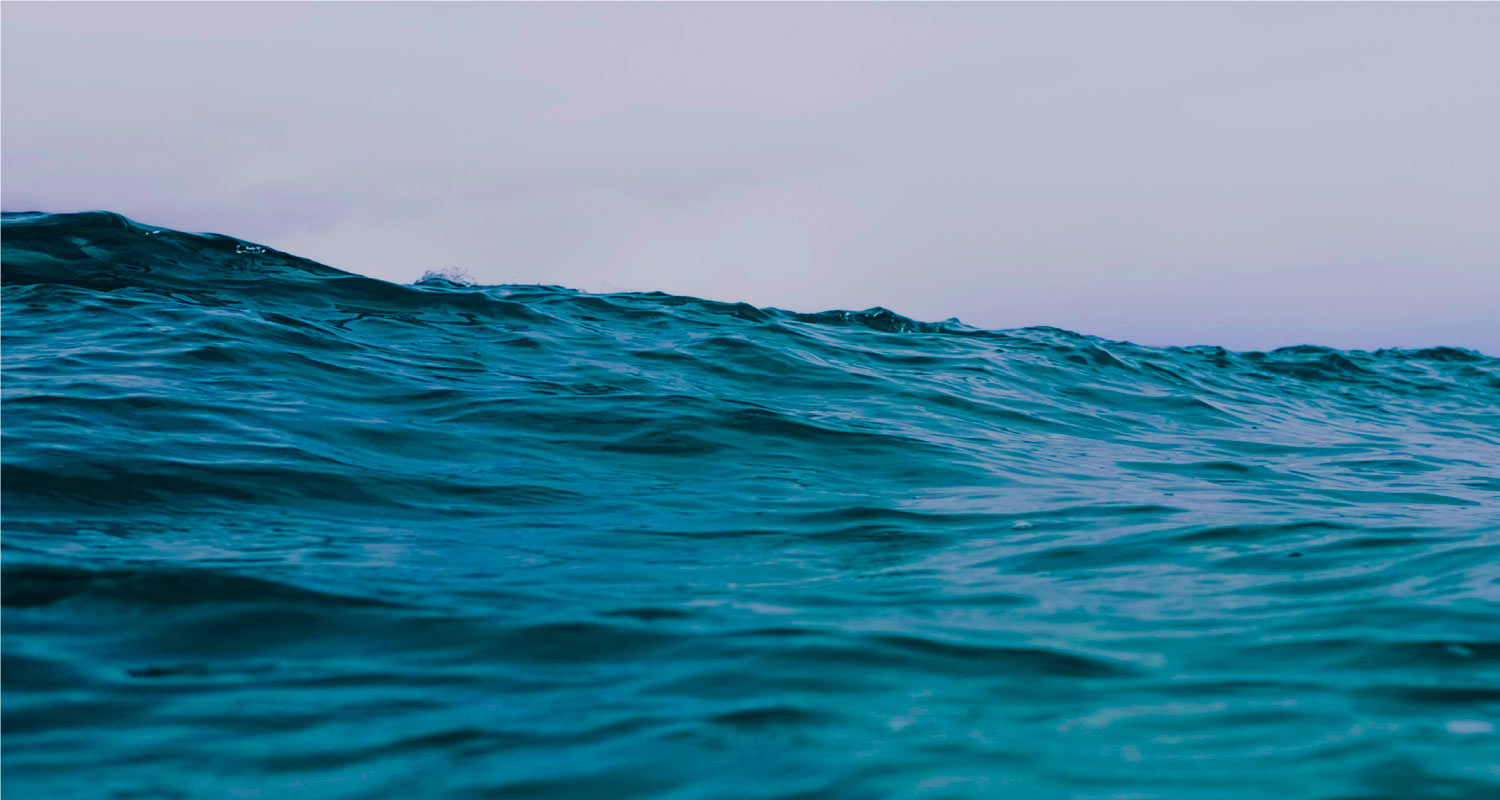
Every year, World Oceans Day is celebrated on June 8. But these majestic bodies of water that surround our planet are treasures that deserve to be honoured and, above all, protected every day.
Luckily, these five solutions make it easy to know how to protect the ocean on a regular basis. All aboard!

1. Look for Plastic-Free Options
There’s 33 billion pounds of plastic in the oceans each year that affect tens of thousands of marine species. That is the equivalent of two garbage trucks full of plastic being dumped into the ocean every minute. Even more shocking is that the plastic NEVER goes away.
In fact, it disintegrates into microplastics that attract other chemical pollutants, which are then ingested by fish, and make their way into the stomachs of humans who eat the fish1. Sounds appetizing? Didn’t think so.

To help protect the ocean, search your grocery and drug stores for plastic-free options. Fortunately, more and more personal care brands are marketing products packaged in cardboard.
Such can be said about ATTITUDE’s leaves bar™ collection of plastic-free beauty bars, which includes body soaps, body butters, dry oils, shampoos and more. Eliminate single-use plastic in all its forms: straws, water bottles, and utensils. And don’t forget to bring reusable bags when you shop as well!
2. Reduce Your Carbon Footprint
When talking about greenhouse gas emissions, we tend to think about the detrimental consequences on the ozone layer, disregarding the effects on another of the planet’s protectors: the oceans.
Sure, they have absorbed more than a quarter of carbon dioxide emissions since the end of the pre-industrial era2, but over time, this natural phenomenon has created two major problems that greatly affect marine and terrestrial life: the warming and acidification of the oceans.To protect the oceans and the planet, everyone should make a conscious effort!
Here are six simple actions that make a big difference to reduce your carbon dioxide emissions:
- Take shorter showers to consume less hot water
- Use the dishwasher only when it is full
- Hang your clothes instead of using the dryer
- Practice recycling and composting
- Use your car less. Bike or take public transport
- Use household products that are ECOLOGO®certified

3. Avoid Sunscreens That Harm Marine Life
Did you know that, according to the Coral Reef Alliance, more than 14,000 tons of sunscreen ends up in the oceans each year?3 Derived directly from swimmers or effluent sewage, these residues contain toxic ingredients such as oxybenzone, octinoxate, and benzophenone-2 that are dangerous for several marine species – even in minute quantities.
The ingredients act as filters to protect the skin from UVA and UVB rays, but they cause significant harm within coral colonies, which include damaging their DNA, accelerating their bleaching, causing significant deformities or even death.4
Luckily, there are products that can help protect the oceans and their sublime inhabitants. For example, a mineral sunscreen that leaves no trace of harmful chemicals neither in the ocean nor your wastewater.
Assuming you are a fan of easy-to-apply formulas, you will love these plastic-free sun sticks that are made with non-nano zinc oxide, the safest sunscreen according to Environmental Working Group (EWG) experts. It helps save the ocean without leaving a white residue on the skin!
If you want to know more tips about choosing reef-friendly sunscreen, read our article to help you make your choice of sunscreen.

4. Consume Sustainable Seafood
Not only do the oceans regulate the climate and produce more than half of the oxygen needed to live on Earth, but they also supply us with food. What once was considered an unlimited food source is now amid a global crisis that is caused by overfishing, bad management, and climate change. As a matter of fact, over the past 50 years, many large fish such as bluefin tuna, cod, and sharks have been fished to the brink of extinction.5
Before you decide to put fish on today’s menu, ask yourself if the seafood you are going to consume has been fished responsibly. How can you make that distinction? By spotting the MSC, ASC and Ocean Wise sustainable fishing certification labels on fresh, frozen, and canned fish.6
Also, try to eat more local fish while expanding your selection to include smaller fish like sardines, herring, and mackerel. Since they need less food than larger fish, the reproduce at a much faster rate.
5. Let’s Dive In!
In the words of French oceanographer Jean-Yves Cousteau, “People protect what they love, they love what they understand.”
Boasting the world’s second-longest continental coastline, North America is responsible for millions of kilometers of ocean, as well as the many rivers and streams that flow into these salty bodies of water. Why not take the plunge and go on an adventure of your own? By discovering what’s beneath the surface, you will gain a deeper affinity and want to protect the ocean against the afflictions that effect it more than ever.

For more information on how you can join the fight against ocean and environmental pollution and help reduce the amount of plastic in the oceans, check out these eight straightforward actions.
Sources
- https://plastics.oceana.org/
- https://www.ucsusa.org/resources/co2-and-ocean-acidification.
- https://coral.org/en/blog/sunscreen-101-protecting-your-skin-and-coral-reefs/
- https://www.ewg.org/news-insights/news-release/hawaii-ban-2-toxic-sunscreen-ingredients-protect-fragile-coral-reefs
- https://wwf.ca/habitat/oceans/
- https://ici.radio-canada.ca/mordu/2184/comment-choisir-poisson-ecoresponsable (Only available in French)